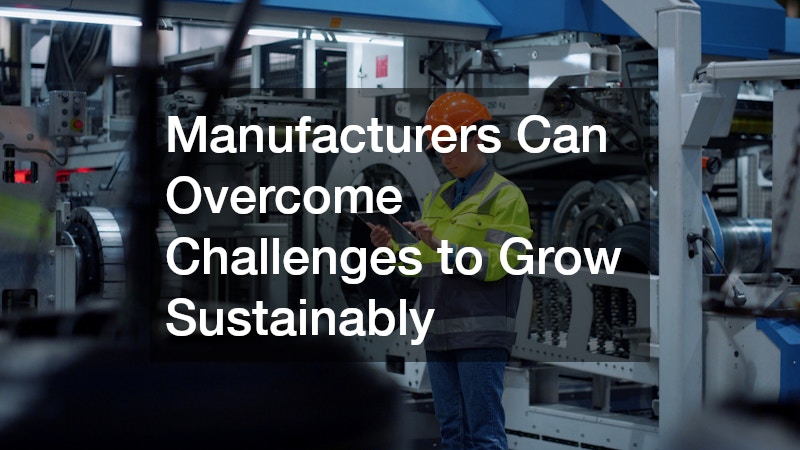Key Challenges Facing Industrial Manufacturers Today

The industrial manufacturing sector is at a pivotal crossroads, undergoing profound changes driven by rapid technological advancements, shifting market demands, and increasing global complexity. As manufacturers strive to remain competitive in an era marked by digital transformation and heightened sustainability expectations, they confront an array of significant challenges. From integrating automation and embracing Industry 4.0 technologies to managing fragile supply chains and meeting stringent environmental regulations, these obstacles require innovative thinking and strategic planning. This article delves into the key challenges facing industrial manufacturers today, highlighting the critical issues and offering insight into how companies can navigate this evolving landscape to build resilience and future-proof their operations.
How is technology impacting industrial manufacturing?
Automation and Robotics
The integration of automation and robotics in manufacturing processes promises increased efficiency but also presents challenges in implementation and workforce adaptation. Machines powered by robotics can operate tirelessly, offering a level of precision and consistency that human labor might struggle to maintain, yet the transition requires careful planning and investment.
Implementing advanced automation demands skill development and training, pushing manufacturers to reformulate their workforce strategies. As workforce demographics shift, manufacturers must address potential skill gaps to fully leverage the benefits of robotics and automation.
Despite these challenges, the potential for increased productivity and cost reductions is substantial with the right deployment. The adoption of robotics can further lead to enhanced safety in the workplace, a key advantage for manufacturers prioritizing worker welfare.
Digital Transformation and Industry 4.0
Embracing digital tools and technologies such as IoT and AI is crucial for manufacturers to remain competitive, yet it requires significant investment and change management. The adoption of Industry 4.0 enables the capture and analysis of vast sets of data, driving insights and fostering innovation.
Digital transformation facilitates real-time decision-making but necessitates robust cybersecurity measures to protect sensitive data. As manufacturers transition to smart factories, they must navigate not only technological integration but also shifts in operational mindsets.
Moreover, digital transformation often means reshaping organizational structures, where agile methodologies replace traditional management roles. This evolution highlights the necessity of a cultural shift within organizations to accommodate new digital competencies.
What are the supply chain challenges faced by manufacturers?
Global Supply Chain Disruptions
Recent global events have highlighted the vulnerabilities in international supply chains, necessitating robust risk management and adaptation strategies for continuity. Disruptions have emphasized the need for resilience, prompting businesses to reconsider their supply chain networks and dependency on single-source suppliers.
Manufacturers are increasingly exploring local and regional supply chains to reduce exposure to global uncertainties. By diversifying their supply strategies, companies aim to achieve stability and continuity even amidst unpredictable challenges.
Additionally, establishing digital supply networks allows greater transparency and flexibility, aiding manufacturers in anticipating potential supply chain disruptions. Although such measures require investment, they ultimately contribute to building more robust operational frameworks.
Cost Management and Efficiency
Balancing cost-efficiency while maintaining quality is an ongoing battle, with manufacturers needing to optimize logistics and resource allocation efficiently. Innovative technologies, like predictive analytics, assist manufacturers in identifying inefficiencies and implementing cost-saving strategies.
The pressure to reduce costs often conflicts with maintaining high standards, pushing manufacturers to continuously evaluate their processes and materials for improvement. Additionally, external economic factors, such as fluctuating raw material costs, can significantly impact financial planning.
Efficient inventory management systems and strategic partnerships with suppliers help manufacturers reduce waste and streamline operations. These adjustments not only improve cost management but also reinforce the organization’s adaptability to changing market conditions.
How are manufacturers addressing sustainability and environmental concerns?
Adoption of Sustainable Practices
Sustainability is becoming a central focus, with manufacturers actively seeking to reduce their environmental footprint through sustainable materials and energy efficiency. Implementing circular economy practices helps in minimizing waste and reducing resource consumption over time.
Investment in renewable energy sources, such as solar or wind, contributes to reducing greenhouse gas emissions. As consumer demand for green products rises, manufacturers are encouraged to incorporate sustainability into their brand identity and offerings.
Collaborations with eco-focused organizations can help manufacturers achieve their sustainability goals more quickly and effectively. By integrating these measures, they not only comply with regulations but also meet consumer expectations and increase brand loyalty.
Regulatory Compliance and Initiatives
Navigating complex environmental regulations requires compliance and innovation, with manufacturers increasingly participating in green initiatives and certifications. Adhering to international standards like ISO 14001 helps organizations systematically manage their environmental responsibilities.
Participation in voluntary sustainability reporting enhances transparency and builds trust with stakeholders. These initiatives often serve as a differentiator in a marketplace increasingly concerned with environmental impact.
Furthermore, proactive compliance with regulatory changes fosters a culture of sustainability within the organization. This forward-thinking approach can lead to improved operational efficiencies and alignment with global ESG (Environmental, Social, and Governance) trends.
In today’s dynamic industrial manufacturing environment, challenges such as technological disruption, supply chain volatility, cost pressures, and sustainability demands are not just obstacles but also catalysts for growth and innovation. Manufacturers that proactively address these issues by investing in workforce development, adopting advanced digital tools, diversifying supply networks, and committing to sustainable practices will be best positioned to thrive. Success in this sector hinges on the ability to adapt quickly, harness new technologies effectively, and embed sustainability at the core of business strategy. By fostering agility and embracing a forward-looking mindset, industrial manufacturers can overcome current hurdles and unlock new opportunities for long-term competitiveness and sustainable growth in a rapidly changing global market.

